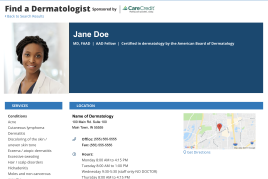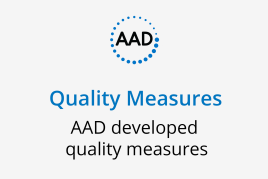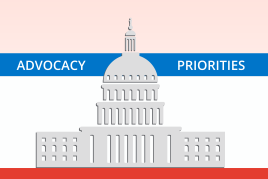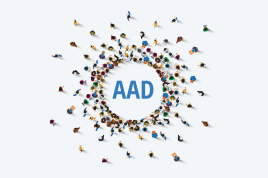Dermatologic FOMO and suggested remedies
 By Warren R. Heymann, MD
By Warren R. Heymann, MDDec. 10, 2016
“The main problem of the future will be deciding what to do with your newly found leisure time that these inventions will allow.” I heard (and believed) this as a 9-year-old boy visiting the General Electric Pavillion exhibiting Disney’s “Carousel of Progress” at the 1964 World’s Fair in Queens, New York. What a thrill it was to see a phone with push buttons and a color TV with a remote control! (As the youngest in my family, it was my responsibility to get up and change the channel.)
When is the last time you watched TV with your whole family?
When did you last worry about too much leisure time?
This is the age of FOMO — Fear of Missing Out. According to Dossey “FOMO is considered a form of social anxiety — a compulsive concern that one might miss an opportunity for social interaction, a novel experience, or some other satisfying event, often aroused by posts seen on social media sites. FOMO reflects a worry that friends may be having rewarding experiences from which one is absent.” (1). This is not just a millennial issue — FOMO may intensify feelings of envy in physicians, because of excessively busy schedules focusing on patients, while friends are flouting their travels on Instagram (2).
I learned long ago that one life is too short to embrace everything you wish to accomplish. I’m delighted for my friends and colleagues when they’re able to carve some time and live their dreams. I hope they feel the same for me when I travel. Professionally, however, I suffer from a new disease — Dermatologic FOMO (D-FOMO). The disease is not new, just the label. I’m always worrying about my patients — what am I missing either diagnostically or therapeutically?
Ken Arndt wrote the following in 1992: “The amount of biomedical information contained in scientific journals has grown to the point that complete coverage of this material is impossible. The number of articles and journals being published has been growing at an exponential rate since 1750.” (3) The number of articles listed in PubMed for October 2016 was 7854.
Many of you cannot conceptually conceive of going to the library, heading down into the stacks, pulling “Current Contents” searching for an appropriate reference, physically finding the journal (assuming your library had it, and if not, filling out a form for an interlibrary loan), and photocopying the article. What would take an entire Sunday afternoon (I really did have FOMO then!) now takes a millisecond. The paradox is that with the world in your palm, whatever you pull up instantly may be obsolete by the time you finish your EMR note!
What can be done to combat D-FOMO?
1. Accept its existence. The fear is real but stop trying to be superhuman. As remarkable as the human brain is, acknowledge the fact that it is a human brain with humbling limitations. The technological pace and rapidity of reporting will only increase exponentially. Consider IBM’s Watson your friend, not competitor.
2. As suggested by Dr. Arndt, “Critically and consistently reading a limited number of high-quality peer-reviewed journals as well as taking advantage of information available through computer networks and bibliographic and full-text databases is the best approach to coping with the volume of medical literature.” (3) Think of the recent consequences of “fake news” that have come to light with real-life consequences. If you stay with well-respected journals, at least you will know that the articles have at least been subject to strict peer review.
3. Participate in a journal club, either live or electronically. The limitations of the “classical” journal club, where articles are handed out, and then discussed in person, may not be practical for many. A virtual journal club, however, has been demonstrated to be educationally valuable, easy to participate in, helpful in keeping up to date with recent papers and useful in developing critical appraisal skills (4).
4. Digest the information. This is really no different than eating. You’re far better off taking small bites, enjoying the flavor, and savoring the experience. Eating too quickly causes reflux; cramming too much information may lead to a tension headache, and a diminished likelihood of retaining what you’ve read. (Anecdotally, I think my residents remember more of the articles of this website when we discuss them throughout the month, rather than all at once during our journal club).
5. View acquiring new knowledge as a joy, not a chore!
6. Keep electronic notes. Enter a few main points in your own retrievable file – they’re easy to access whenever you need them and you need not worry about forgetting them!
7. Seventh, and most importantly, remember how competitive it has become to become a dermatologist! So many young, talented people are vying to do what we do. They suffer from a different disorder — FOMO-BD (Fear of Missing Out of Becoming a Dermatologist). I know I wouldn’t even get an interview at my own program if I were applying today. I’m so glad I’m afflicted with D-FOMO than FOMO-BD!
1. Dossey L. FOMO, digital dementia, and our dangerous experiment. Explore (NY) 2014; 10: 69-73.
2. Radzi NSM. The doctor’s FOMO (Fear of missing out). MIMS 16 Nov 2016.
3. Arndt KAL Information excess in medicine. Overview, relevance to dermatology and strategies for coping. Arch Dermatol 1992; 128: 1249-56.
4. Oliphant R, et al. Early experience of a virtual journal club. Clin Teach 2015; 12: 389-93.
All content found on Dermatology World Insights and Inquiries, including: text, images, video, audio, or other formats, were created for informational purposes only. The content represents the opinions of the authors and should not be interpreted as the official AAD position on any topic addressed. It is not intended to be a substitute for professional medical advice, diagnosis, or treatment.
DW Insights and Inquiries archive
Explore hundreds of Dermatology World Insights and Inquiries articles by clinical area, specific condition, or medical journal source.
All content solely developed by the American Academy of Dermatology
The American Academy of Dermatology gratefully acknowledges the support from Incyte Dermatology.
 Make it easy for patients to find you.
Make it easy for patients to find you.
 Meet the new AAD
Meet the new AAD
 2022 AAD VMX
2022 AAD VMX
 AAD Learning Center
AAD Learning Center
 Need coding help?
Need coding help?
 Reduce burdens
Reduce burdens
 Clinical guidelines
Clinical guidelines
 Why use AAD measures?
Why use AAD measures?
 Latest news
Latest news
 New insights
New insights
 Combat burnout
Combat burnout
 Joining or selling a practice?
Joining or selling a practice?
 Advocacy priorities
Advocacy priorities
 Promote the specialty
Promote the specialty

